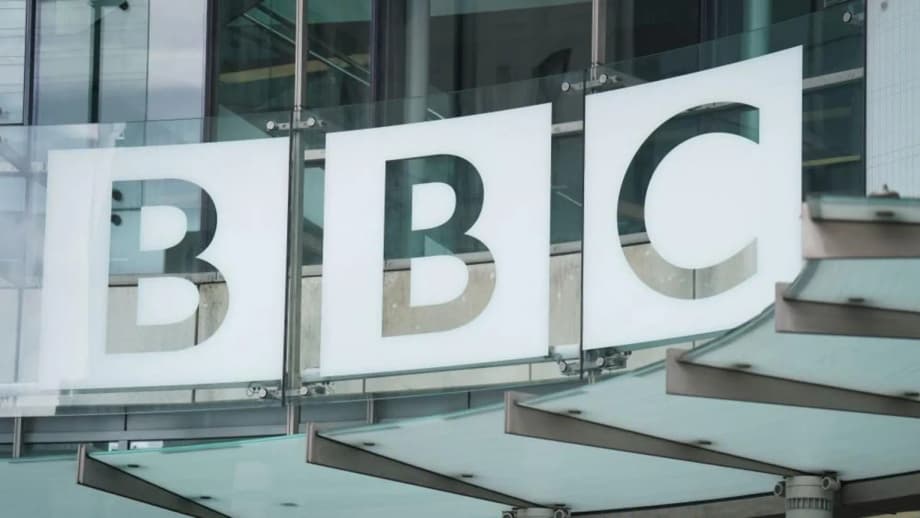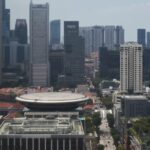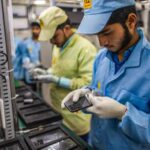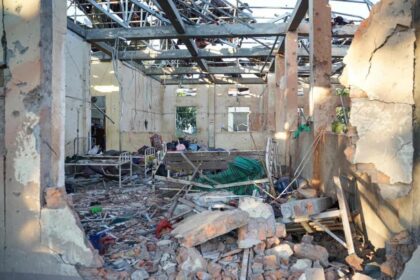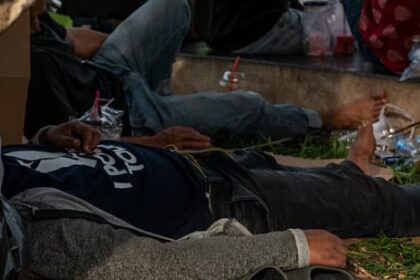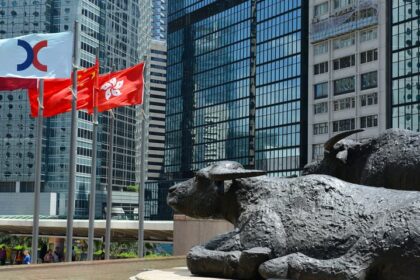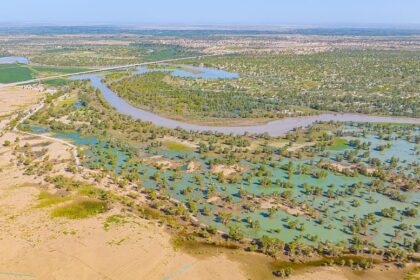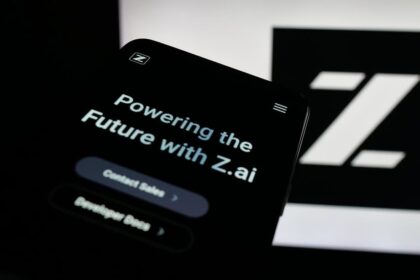Why this case matters for press freedom and UK Vietnam relations
A Vietnamese journalist who works for the BBC has been unable to leave Vietnam for months after authorities withheld a newly renewed passport and an ID card. The BBC says the journalist, a Vietnamese national who normally works for its Vietnamese service outside the country, traveled home to visit family and complete a routine passport renewal. Instead, the journalist was questioned for days by officials and has since been prevented from traveling out of the country. The case has touched a nerve in Britain and Vietnam, because it coincides with the arrival in London of To Lam, general secretary of the Communist Party of Vietnam, for talks expected to include a meeting with Prime Minister Sir Keir Starmer. The incident places human rights and media freedom alongside trade and strategic cooperation in a sensitive moment for both governments.
- Why this case matters for press freedom and UK Vietnam relations
- A sensitive case during a high profile visit to London
- What Vietnamese law says about speech and media
- BBC Vietnamese service has long been a target
- How passport seizures and exit bans are used
- What the UK can do, and the limits
- What happens next for the journalist
- Wider risks for journalists in tense environments
- Key Points
Friends and colleagues say the journalist, 29, returned to her family home near Ho Chi Minh City in August. Within days she was called in for interrogation sessions that stretched over many hours. People familiar with the situation say she faced questions about her reporting for the BBC Vietnamese service and felt under pressure to acknowledge responsibility for a set of articles. Surveillance around her home has been described as intrusive. She is now in an uneasy limbo, living with family but barred from travel because she lacks the documents required to leave the country.
Vietnamese authorities often restrict movement while they investigate speech or association cases. In practice, officials can retain passports and refer to an active inquiry. Unlike a formal arrest, this creates a form of immobility that leaves people stranded and anxious, while offering little clarity about the next step. Rights organizations have documented travel bans and passport seizures used against activists, writers, and independent voices in recent years.
The BBC has issued a public statement calling for the journalist to be allowed to leave and for the return of her documents. In that statement, the broadcaster explained that the journalist was on a private visit to see family and complete paperwork, and that the prolonged questioning has become a source of serious concern.
The BBC said: “One of our journalists has been unable to leave Vietnam for several months as the authorities have withheld their ID card and their renewed passport. During this time our journalist was subject to multiple days of questioning by the authorities. The BBC journalist was in Vietnam for a routine passport renewal and to visit family. We are deeply concerned about our journalist’s wellbeing and urge the authorities to allow them to leave immediately, providing them with their renewed passport so they can return to work.”
A spokesperson for the UK Foreign, Commonwealth and Development Office reiterated that Britain raises concerns about pressure on civil society and independent media with Vietnam. The UK has presented itself as a defender of media freedom and has programs that support free expression and journalist safety across the world.
A Foreign Office spokesperson said: “We remain concerned by reported harassment of NGOs, journalists, and rights activists and communities in Vietnam and continue to raise these concerns directly with our Vietnamese counterpart.”
A sensitive case during a high profile visit to London
To Lam, a longtime security official who now serves as the party general secretary, is visiting the UK for meetings that showcase deepening economic and political ties. The agenda is expected to span trade, technology, education, investment, and climate cooperation. The controversy over the BBC journalist risks overshadowing that program. Members of the UK media community, rights advocates, and some lawmakers are urging the government to press Vietnam to end the travel restriction and return the passport without delay.
Phil Robertson, a Bangkok based human rights advocate who knows the journalist, urged UK leaders to speak directly at the highest level. He argued that the case is straightforward and that the journalist should never have been blocked from leaving.
Phil Robertson said: “The British government needs to speak very, very, very plainly and frankly to To Lam to say she’s done nothing wrong. She was simply doing her work. She should be given back her passport and allowed to proceed immediately to the airport and fly out.”
He also warned that intense questioning about specific articles can signal that a criminal case is being prepared, and that the timing of any escalation may be influenced by the political calendar. In past episodes, authorities have paused or delayed arrests during high level diplomatic visits, only to resume enforcement later. The possibility that a single journalist could be used to intimidate others in the same newsroom also worries advocates, who see the tactic as a way to chill independent reporting.
What Vietnamese law says about speech and media
Vietnam is a one party state, and the Communist Party maintains tight control of the media. The Press Law defines journalism as a tool that serves state objectives. That doctrine filters down into licensing, content controls, and day to day editorial practice. Editors and reporters inside the country are expected to avoid sensitive topics, including criticism of top leaders, allegations of corruption that touch the security apparatus, independent activism, and protests. Those who overstep can face sanctions, job loss, or criminal prosecution under national security provisions.
Digital speech is often treated with the same lens. The 2018 Cybersecurity Law and related regulations give authorities broad power to compel platforms to remove content, restrict accounts, and hand over data. Users, including writers and independent reporters, have been charged over posts that officials say distort facts or threaten public order. Vietnamese courts have issued long sentences for alleged propaganda against the state and for abusing democratic freedoms. These catch all concepts allow prosecutors to reach into many types of expression.
Politically active writers have paid a heavy price. The detention and prosecution of pro democracy author Pham Doan Trang, accused of distributing anti state material and later sentenced to a long prison term, underscored the risks faced by independent voices. Her case, like others, drew strong international criticism and became a reference point for how Vietnam polices dissent.
Beyond arrests, restrictions on movement are common. Human Rights Watch has documented a pattern of exit bans and passport seizures affecting activists and government critics. The organization reported that during the first part of this year dozens of people were arrested over peaceful criticism or alleged links to independent groups. The effect is a constant pressure on those who write or speak about public life in Vietnam, both online and offline.
Crackdowns often spike around periods of global attention. During past visits by foreign leaders, rights groups recorded waves of detentions, heightened surveillance, and interference with digital platforms. In 2016, when the United States president visited, Amnesty International reported arrests of peaceful activists and restrictions on independent media, including steps that affected BBC journalists and blocks on major social platforms. The pattern shows how the state manages both the street and the information space during sensitive moments.
BBC Vietnamese service has long been a target
The BBC Vietnamese service was established in the 1950s and has sought to provide rigorous, independent reporting to audiences inside and outside Vietnam. For many inside the country, access to the BBC website is sporadic because network level blocking is used by state agencies. The Vietnamese service is based outside the country, including in Bangkok, to reduce direct interference from public security. Even so, staff remain vulnerable when they travel home, for example to renew passports or visit relatives.
Over the past decade, the service experimented with new formats to reach viewers in Vietnam while respecting impartial standards. A YouTube discussion show launched in 2014 created a rare space where officials, academics, dissidents, and citizens debated policy and social issues. Growing pressure after 2016 and tighter internet controls made participation from inside Vietnam risky. Cyber harassment of moderators increased, and fewer guests inside the country were willing to appear. The program eventually closed in 2022. The closures and blocks reduced the range of voices available to Vietnamese audiences, and further limited room for open debate.
Authorities have also tried to bend the information environment on social networks, where nationalist pages and pro government accounts can crowd out criticism. Writers and influencers who challenge official narratives say they face targeted moderation requests, troll campaigns, and legal threats. This broader context helps explain why a Vietnamese journalist working for a foreign news outlet can attract focus from security agencies. People close to the current case say the prolonged questioning and the requirement to acknowledge specific stories are ominous signs that could precede more serious action.
How passport seizures and exit bans are used
Vietnamese law allows officials to restrict a citizen’s ability to exit the country while an investigation is pending. In practice, that can mean a passport is held by an authority and a person is told to remain available for questioning. There may be no formal charge, timeline, or court hearing. For those who work in journalism, this creates a precarious situation: not detained in a cell, yet unable to leave and unsure when the restriction will end. Exit bans can last weeks or months and are sometimes renewed without clear explanation.
Friends of the BBC journalist say she was required to acknowledge a set of articles she wrote. In similar cases, those documents can be cited later to build a case for violating national security statutes. The method serves two goals at once. It collects material for a possible prosecution and sends a message to colleagues that coverage of sensitive subjects carries personal risk. Newsrooms based outside Vietnam rely on local knowledge and contacts, and even the hint of a case can make sources reluctant to talk.
What the UK can do, and the limits
The UK hosts one of the world’s most recognized public broadcasters, and the government champions media freedom in international forums. This case is complicated because the journalist is a Vietnamese citizen, so it is not a consular matter. The UK can still use diplomatic tools. Options range from private demarches in Hanoi and London to raising the case at the leader level. Britain can bring partners into the conversation and link progress to other areas of cooperation. The aim would be to secure the return of the passport without escalating rhetoric that could backfire.
There are reasons to believe quiet diplomacy may be effective. Vietnam cares about its reputation as a reliable partner for trade and investment. It is building ties with a range of global powers and presents itself as stable, open to business, and non aligned. A prolonged standoff over a single journalist would distract from that message. At the same time, officials in the security apparatus may resist anything that looks like a concession to a foreign media outlet. That tension can slow decisions and produce mixed signals.
What happens next for the journalist
Several scenarios are possible. In the best case, the passport and ID card are returned and the journalist is allowed to travel back to her base. A quieter resolution is sometimes how sensitive cases end when governments want to avoid negative headlines. A second scenario involves continued exit restrictions without charges, leaving the journalist in limbo. A third, more serious scenario is a formal arrest and the opening of a criminal case tied to reporting. People familiar with Vietnam’s enforcement patterns say the first days after a high visibility visit can be decisive.
Whatever the path, the case has already sent a signal to reporters and editors who cover Vietnam from abroad. Many now report from outside the country, in Thailand, Singapore, or Europe, to protect their independence. Travel home for family reasons or administrative paperwork is becoming more difficult to plan. Sources inside Vietnam who speak to foreign media risk questioning or worse. The space for open conversation in Vietnamese public life has narrowed, and incidents like this make that trend visible.
Wider risks for journalists in tense environments
Journalists face hazards in many places where political tensions run high. News crews are sometimes detained briefly, equipment is searched, or reporters are expelled. The common thread is an effort by authorities to control narratives during sensitive moments. Vietnam’s actions fit into that pattern, though each country’s laws and political systems differ. The longer this case remains unresolved, the greater the cost to media freedom in Vietnam and to the credibility of commitments that call for open exchange of ideas.
Key Points
- BBC says a Vietnamese journalist from its Vietnamese service has been barred from leaving Vietnam since August after authorities kept a renewed passport and an ID card.
- The journalist was questioned for multiple days and, according to people close to the case, pressed to acknowledge a set of published articles.
- The case coincides with the UK visit of To Lam, general secretary of the Communist Party of Vietnam, increasing political attention on media freedom.
- The BBC urged Vietnam to return the passport immediately, and the UK Foreign Office said it raises concerns about harassment of journalists with Vietnamese officials.
- Rights groups document exit bans, social media pressure, and arrests of critics, illustrating a tighter environment for speech in Vietnam.
- BBC Vietnamese operates outside Vietnam, and its content faces frequent blocking inside the country, reflecting longstanding friction with state controls.
- Possible outcomes range from the swift return of documents and departure to prolonged travel restrictions or the opening of a criminal case.


